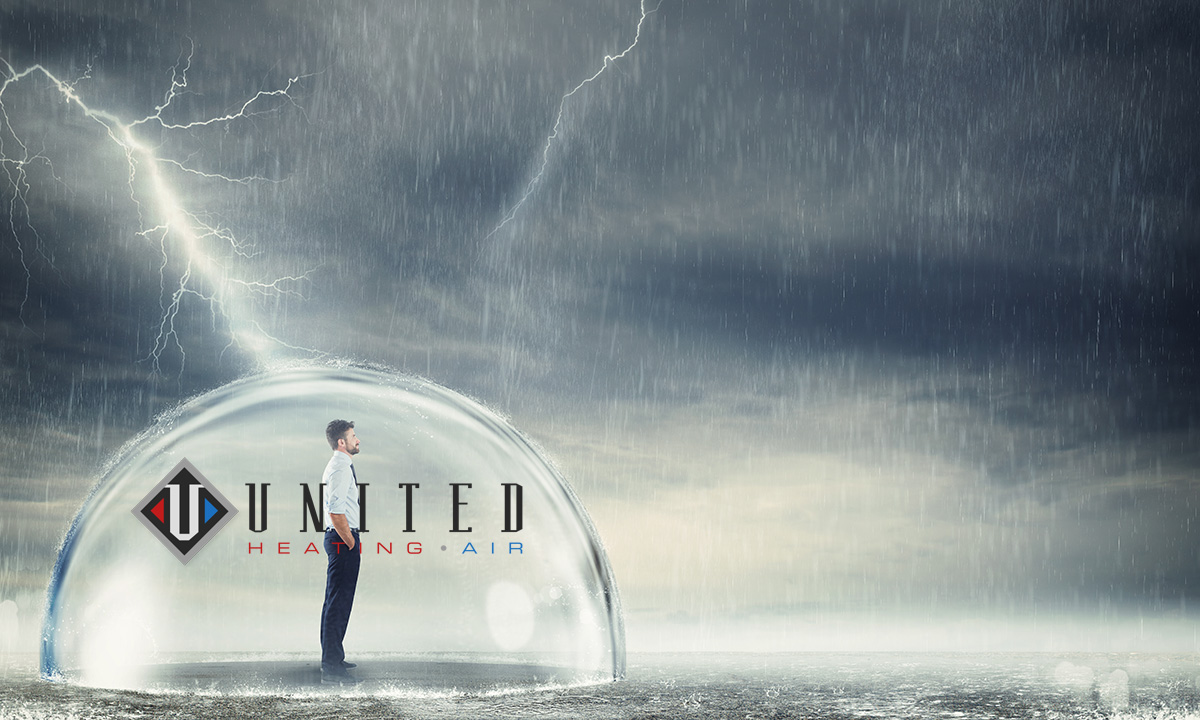Smart homeowners and businessowners know that storm protection is necessary for their refrigeration systems and air conditioners. Why does it matter so much in North Central Florida? For starters, we see a lot of stormy weather. More importantly, however, Florida is ranked number one for experiencing the most hurricanes in U.S. history.
Due to the high risks for major storms, Floridians must stay ready for anything that comes our way. Federal Emergency Management Agency (FEMA) and Ready.gov promotes readiness each September for National Preparedness Month. The goal is to emphasize the importance of protecting our homes, businesses, and communities before a disaster strikes.
Protecting Vital Systems from Major Storms
The experts at United Refrigeration, Heating and Air suggest these 10 tips for preventing risks and protecting your most vital systems:
- Understand the risk factors. Refrigerators, freezers, and HVAC systems are particularly vulnerable to power surges, lightning strikes, and water damage caused by storms.
- Familiarize yourself with operations. Being aware of the general condition, appearance, and functionality of properly running systems can help you more easily spot potential problems or issues, such as temperature changes, leaks, loose wiring, or corrosion.
- Have trusted experts on standby. With United’s on-call experts, you will rest assured that we can help you before, during, and after storms impacting North Central Florida.
- Know what to do and where to go. Surprisingly, many people do not know where their shutoff valves are or which electrical box switches to flip for their most vital systems. Knowing what to do and what steps to take are a key to system protection.
- Unplug systems for protection. Seems simple, but many people fail to unplug systems during a power outage. Unplugging can prevent a damaging surge upon the return of power.
- Shutdown other utilities for safety. In addition to electricity, it could also be wise to turn off gas or shutoff water before, during, or after a major storm to prevent further damage.
- Mitigate risks in certain areas. Whether an outdoor unit or a high-risk area, it is imperative to consider moving or elevating systems for protection against wind, debris, or water. Ask United’s experts about covers, straps, bolts, platforms, and other solutions to avoid hazards.
- Quickly address water damage. The intrusion of water or leaking parts can destroy refrigeration, heating, and air systems. It is crucial to remove water near systems and to make prompt repairs if you have leaking pipes or spot water damage after a storm.
- Schedule a post-storm inspection. In addition to personally checking your systems, it is smart to call in United’s experts to perform a post-storm inspection to verify that no underlying damage was done due to a storm, leak, or power outage.
- Plan regular maintenance. Beyond the storm protocols, it is equally important to schedule regular maintenance, cleanings, and inspections to protect the longevity of your systems.
United Refrigeration, Heating and Air’s team has helped keep homes and businesses running efficiently for over 30 years. Call 352-629-1187 to schedule maintenance or repair services.

